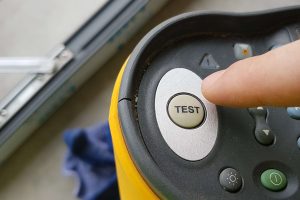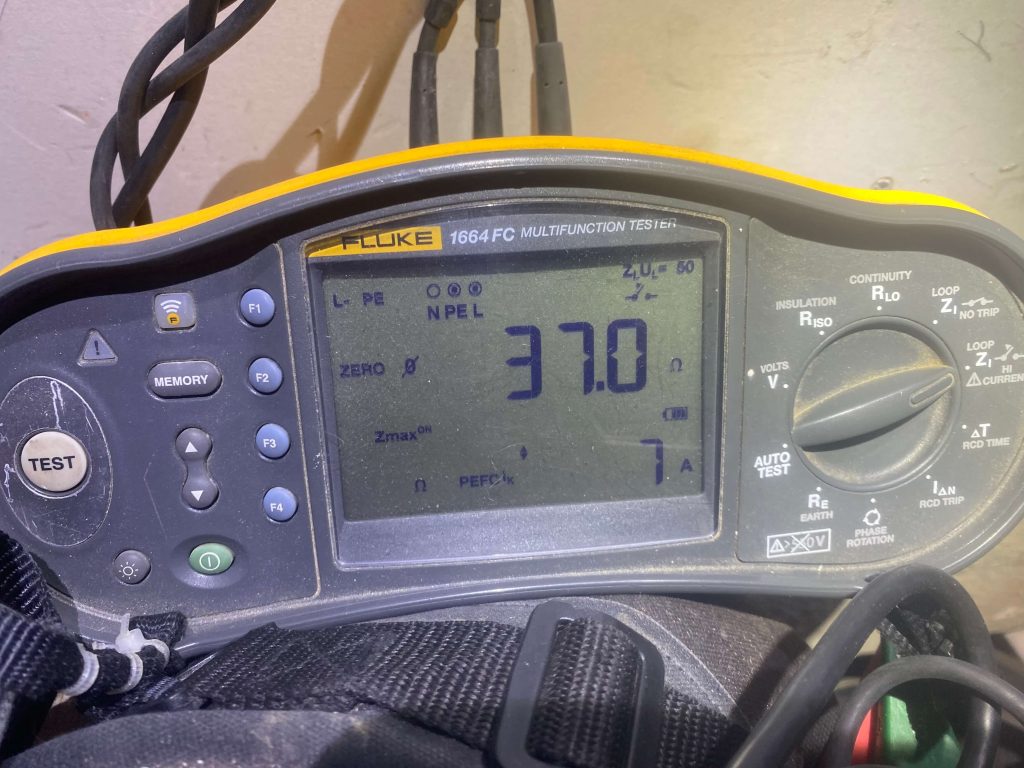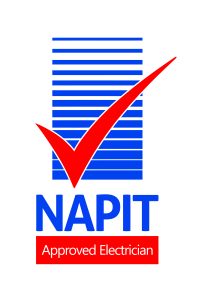eicr in Bristol

All landlords are legally required to carry out an electrical safety inspection every 5 years – are you up to date with your EICR?
An Electrical Installation Condition Report (EICR) is like an MOT for the electrical system of your property. The law was changed back in 2020 for new tenancies and in 2021 it was applied to existing tenancies. We’re accredited and qualified to help you stay compliant and up to date with your EICR.
A detailed assessment of your electrical system to ensure safety & compliance
An Electrical Installation Condition Report (EICR) is a detailed assessment of a property’s electrical system, conducted by a qualified electrician to ensure safety, compliance, and proper functioning.
It is a vital document for landlords, homeowners, and business owners, providing an official record of the condition of the electrical installation and highlighting any issues that need attention. It can also be very useful pre-purchase to assess the condition of a property you’re intending to buy.
Peregrine Electrical can provide this for you across Bristol and in the surrounding areas. We’ll bring our reliable, professional manner and can also provide a quote to fix any issues identified while carrying out the EICR.

EICR by Peregrine Electrical
From £175 for EICR & report documentation
Variable, minimum 2 hours
£54 per hour plus materials for remedial work if required
What happens when we carry out an EICR?

The report begins with information about the installation, including the age of the wiring, previous inspection dates, and any alterations or additions made to the system.
It also specifies the reason for the inspection, such as periodic checks or change of occupancy.

We perform a thorough visual inspection and tests on accessible parts of the electrical system, including consumer units, wiring, switches, sockets, and other accessories. Any limitations of potential testing are agreed upon beforehand.
1. Initial details & scope
The report begins with information about the installation, including the age of the wiring, previous inspection dates, and any alterations or additions made to the system.
It also specifies the reason for the inspection, such as periodic checks or change of occupancy.
2. Inspection & testing
We perform a thorough visual inspection and tests on accessible parts of the electrical system, including consumer units, wiring, switches, sockets, and other accessories. Any limitations of potential testing are agreed upon beforehand.
3. Assessment of condition
We evaluate the general safety and condition of the installation, noting any damage, deterioration, or non-compliance with current standards. Particular attention is paid to potential hazards like exposed wiring, faulty connections, or overloaded circuits.
4. Classification of observations
Any issues found are classified using codes:
C1: Danger present – immediate action required
C2: Potentially dangerous – urgent remedial work needed
C3: Improvement recommended – non-urgent repairs or upgrades
5. Report & recommendations
The report includes a summary of the overall condition, specific observations, and recommendations for repairs, upgrades, or further investigations. It also suggests the next inspection date based on the installation’s condition.
6. Final report & declaration
The final report comprises several documents including a description of the scope and extent of inspections, test results and instruments used, plus a declaration. We’ll sign and date the report confirming compliance with BS 7671 standards.

We evaluate the general safety and condition of the installation, noting any damage, deterioration, or non-compliance with current standards. Particular attention is paid to potential hazards like exposed wiring, faulty connections, or overloaded circuits.

Any issues found are classified using codes:
C1: Danger present – immediate action required
C2: Potentially dangerous – urgent remedial work needed
C3: Improvement recommended – non-urgent repairs or upgrades

The report includes a summary of the overall condition, specific observations, and recommendations for repairs, upgrades, or further investigations. It also suggests the next inspection date based on the installation’s condition.

The final report comprises several documents including a description of the scope and extent of inspections, test results and instruments used, plus a declaration. We’ll sign and date the report confirming compliance with BS 7671 standards.
Common questions answered
Contact us to book your EICR

Accredited Bristol Electrician
We are fully qualified and accredited for all the services we offer. As a Part P NAPIT Approved electrical services contractor we can:

aico gold standard installer
Peregrine Electrical is a certified installer of AICO alarm systems, including smoke, heat and carbon monoxide alarms.
We are experts in the design, installation and configuration of safety systems that take advantage of the latest technology and advanced sensors.
Professional & reliable South Bristol Electricians
We take great pride in every job, from finding electrical faults and fixing lights to installing commercial equipment or designing smart home systems.
